An American born in 2021 has a more than 70% chance of living to age 100. And most of the places AstraZeneca employs people—Germany, France, Sweden, and the UK—have even higher life expectancies.
“Workplace skills used to last you for pretty much your whole working life,” noted Rosemary Hoskins, Global Capability Lead at AstraZeneca. “Now, that working life is getting longer. But the skills don’t even last for five or ten years.”
L&D departments in large, long-standing companies like AstraZeneca are looking at the future of their workforces and rethinking how to keep employees skilled long-term. More and more, progress requires a new learning strategy, a better learning technology ecosystem, and better ways to ensure L&D programs deliver real, and measurable, business impact.
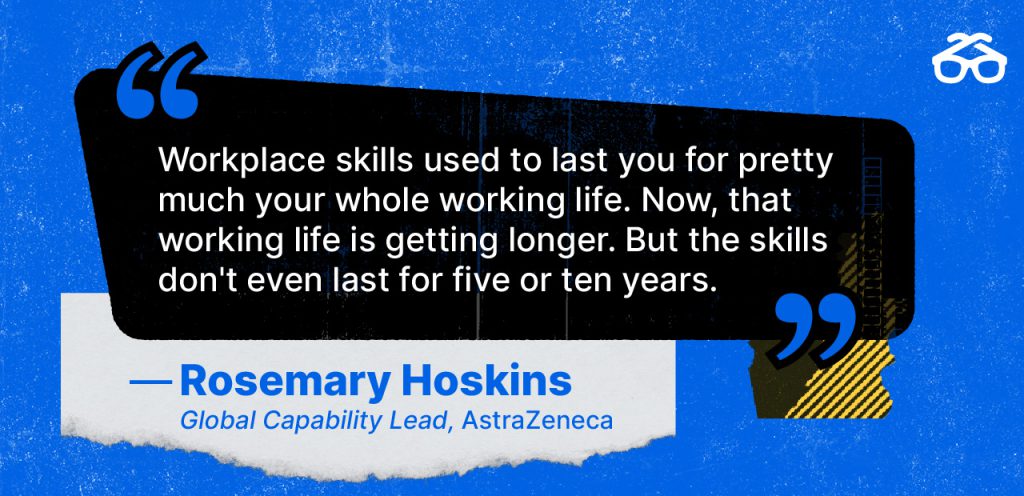
Delivering The Right Skills—at the Right Time
For years, AstraZeneca was known mostly in Europe. But thanks to its partnership with Oxford University and its focus on enhancing learning, the research pharmaceutical company is now famous worldwide for rapidly producing and distributing its COVID-19 vaccine.
In 2019, AstraZeneca leadership set a goal of creating growth through innovation, and leaders knew L&D would play a big role. That meant creating a place where people knew what skills they had. Moreover, it meant inspiring people to increasingly embrace the go-getter mindset required to gain the skills they still needed.
At the time, the company was drowning in a whopping 75 learning systems that delivered a small, mostly English-language offering to about 110,000 workers. Employees struggled every day to find learning content they could use to perform better.
Worse, much of the content was designed for in-person learning; it certainly wasn’t serving the company’s hybrid working model, in which most learning professionals sit in separate business units or disparate regional markets.
Driving Strategic, Radical Change with Degreed
L&D leaders started by identifying seven key areas of change, evaluating their current state and setting goals for the future.
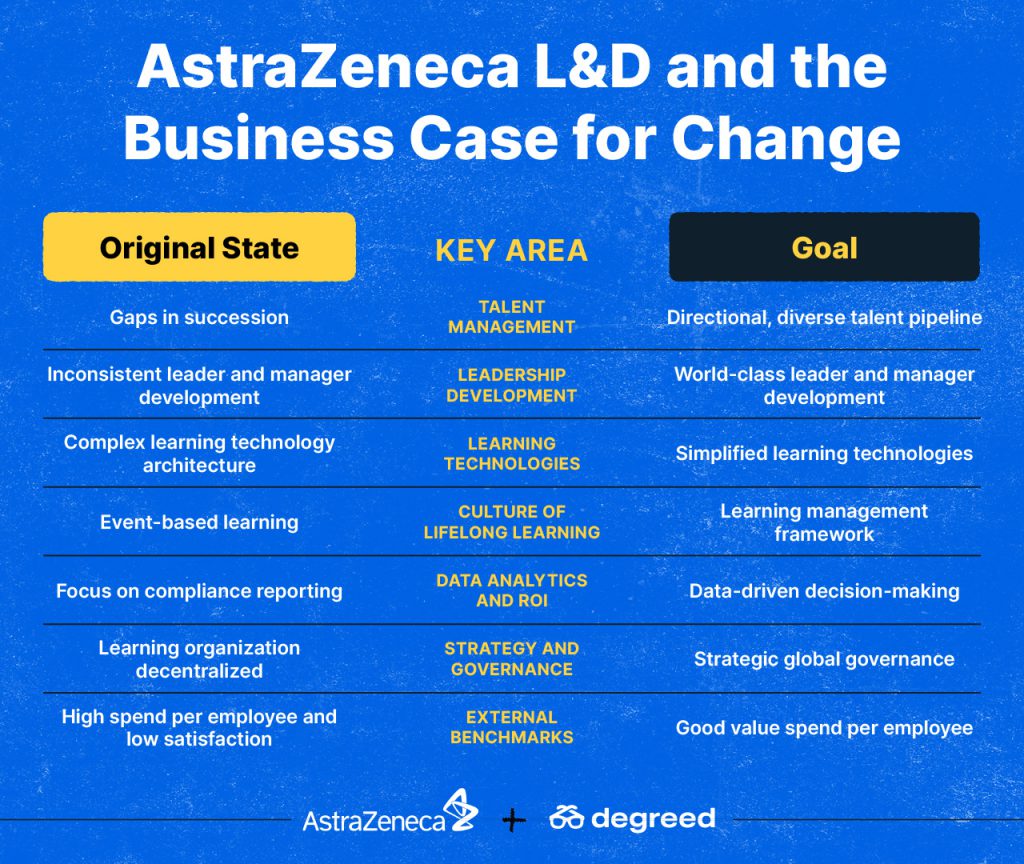
Content Discovery and the Employee Experience
Hoskin’s team envisioned a learning tech stack that made finding content easy for employees—and delivered analytics needed to drive learning initiatives. The team chose Degreed as the primary AstraZeneca learning platform because it powers each stage of content discovery.
With Degreed, employees can:
- Know about available content
- Easily navigate to that content
- Receive personalized content suggestions
In addition, AstraZeneca chose Degreed to ensure employees can learn whatever they need when they need it, said Maria Jewell, Talent and Development Functional Lead at AstraZeneca. “We want to make sure that wherever you are in the business, whatever your job role is, that you can learn anywhere that you want to, anytime, and on any device that you’ve got available to you.”
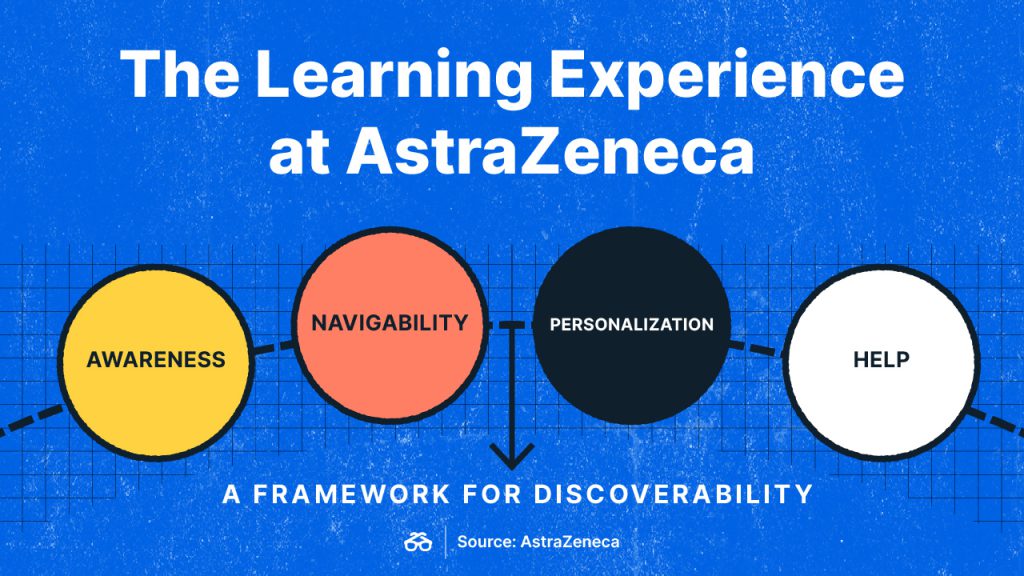
Content
To ensure finding the right content was easy, AstraZeneca identified groups of skills, selected five to prioritize as a company, and identified content that aligned. Then they trimmed redundant content to save money.
Degreed also enabled the company to pivot away from its primarily in-person offerings to self-led global online content, asynchronous social programs, and live programs. The learning team also translated a significant amount of English-only content into the 14 languages the company uses to conduct 90% of its business.
Analytics
While Hoskins’s team ensured all content could be measurable, Jewell’s team zoomed out to rethink how AstraZeneca measured learning.
Initially, AstraZeneca measured learning in three ways:
- Consumption: Are employees attending and completing trainings?
- Experience: Is feedback positive? What are net promoter scores?
- Impact: How does learning impact the business?
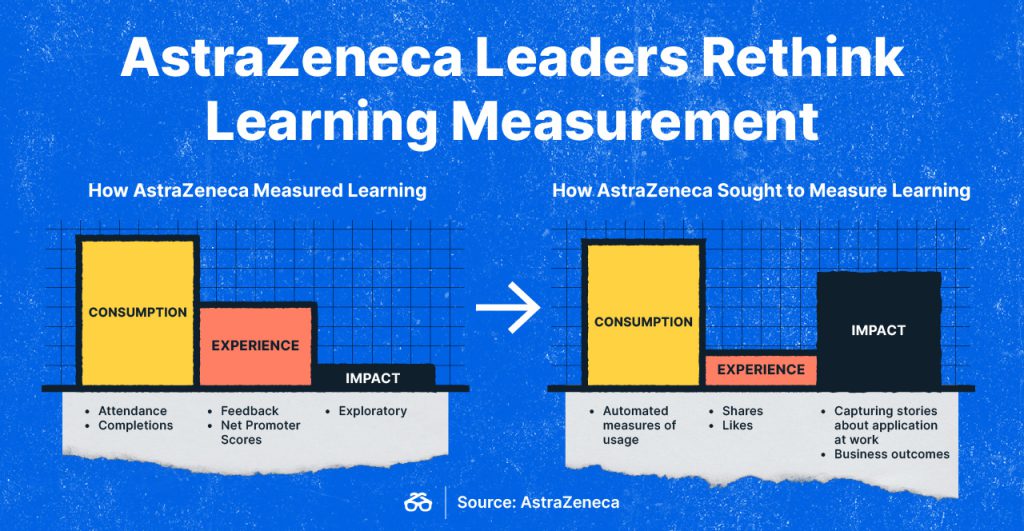
Measuring consumption was key to meeting compliance regulations, but Jewell wanted to dig deeper, so she automated how the team measured consumption. And instead of leaning on surveys to measure experience, L&D counted content likes and shares. These shifts allowed L&D to focus on measuring business impact—which the learning team did by capturing stories about how people were applying their skills at work, and how that affected business outcomes.
AstraZeneca & Global L&D Impact
AstraZeneca started 2019 with 75 learning systems, and trimmed that by 91% in just five years. The company now has only eight learning systems, all united by Degreed, which has 50,000 active users at the company. Employees have completed more than one million modules, and 90% of them have developed new skills.
Importantly, a focus on measurability ensured AstraZeneca could track significant boosts. Nearly all (97%) of employees say they apply their learning, and 90% say it will contribute to better business performance.
The employees’ embrace of continuous learning helped AstraZeneca drive innovation when the COVID-19 pandemic hit, AstraZeneca succeeded in delivering more than three billion doses of its COVID-19 vaccine to 177 countries in fewer than 18 months. Two-thirds of those vaccines went to low- and middle-income countries. AstraZeneca is a name now recognized worldwide.
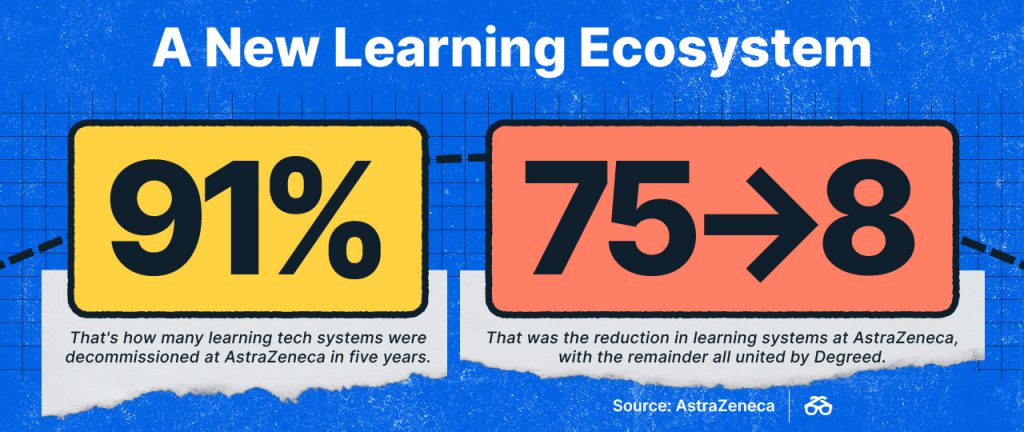
The Right Learning Tech Ecosystem: A Moving Target
AstraZeneca embodies the future of workplace learning, but learning leaders there say it’s only the beginning.
“We’ll never be done,” said Jewell, adding the company’s learning team constantly reviews the state of L&D programs and the efficacy of technology solutions. “We look to enhance the systems we’ve currently got, but we also listen to our learning professionals when they believe there’s a gap. We do proof-of-concepts with them, and it may be that proof-of-concept can lead to something where we add something back into the ecosystem.”
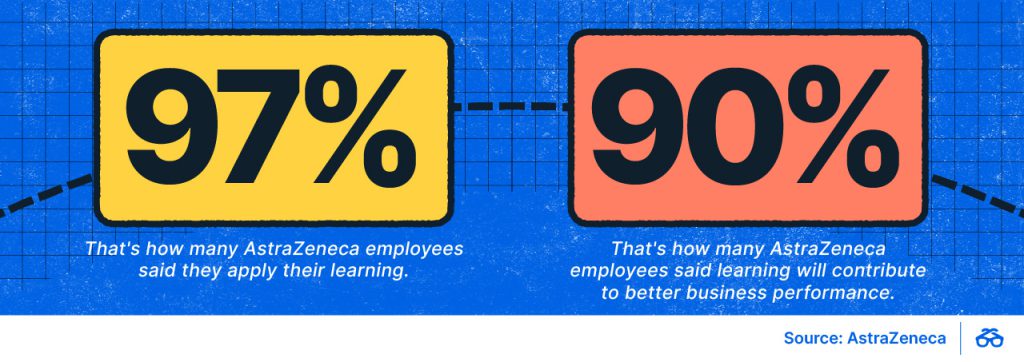
Find out more.
Check out the Degreed guide Building Your Learning Tech Ecosystem to see how you can use the right technology to deliver the right learning at the right time.

